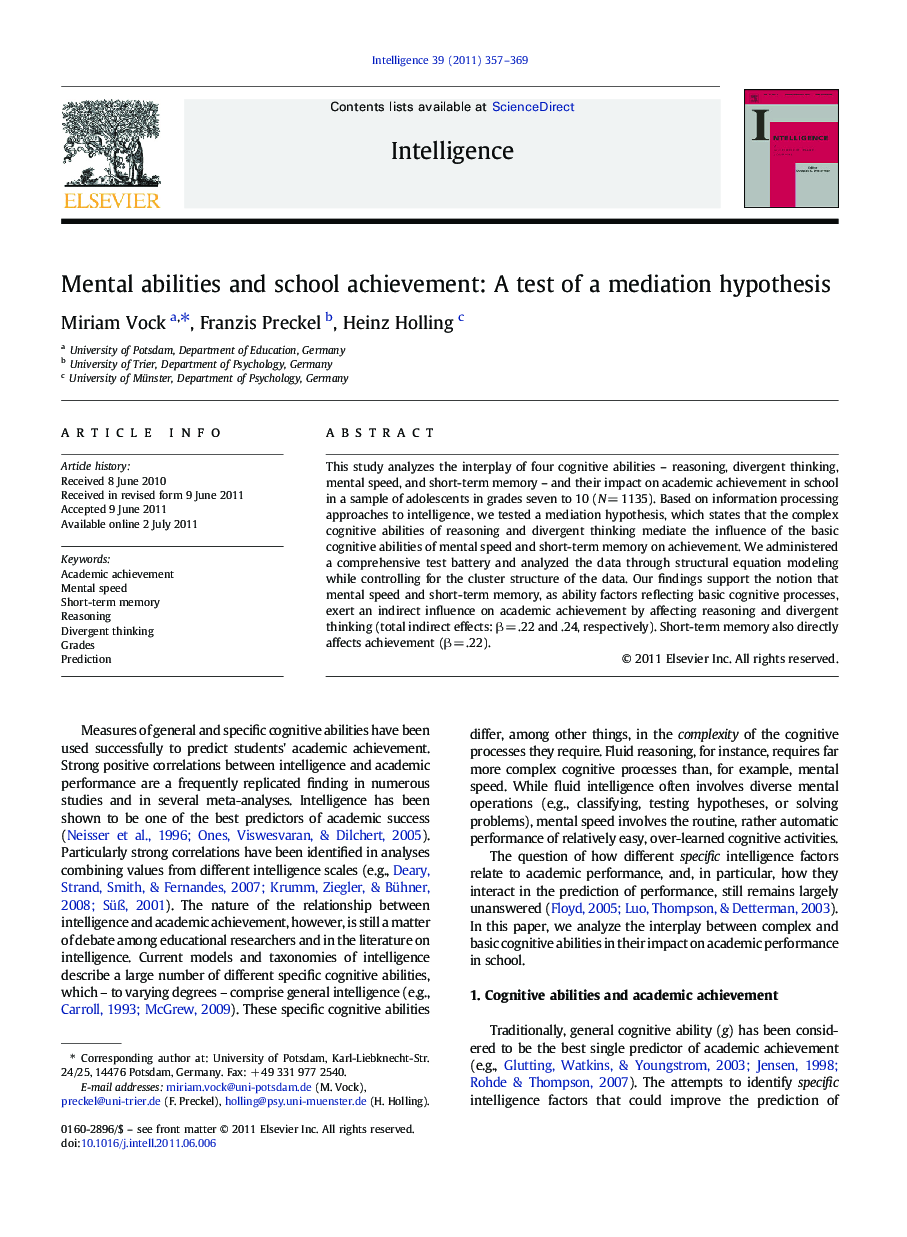| Article ID | Journal | Published Year | Pages | File Type |
|---|---|---|---|---|
| 929146 | Intelligence | 2011 | 13 Pages |
This study analyzes the interplay of four cognitive abilities – reasoning, divergent thinking, mental speed, and short-term memory – and their impact on academic achievement in school in a sample of adolescents in grades seven to 10 (N = 1135). Based on information processing approaches to intelligence, we tested a mediation hypothesis, which states that the complex cognitive abilities of reasoning and divergent thinking mediate the influence of the basic cognitive abilities of mental speed and short-term memory on achievement. We administered a comprehensive test battery and analyzed the data through structural equation modeling while controlling for the cluster structure of the data. Our findings support the notion that mental speed and short-term memory, as ability factors reflecting basic cognitive processes, exert an indirect influence on academic achievement by affecting reasoning and divergent thinking (total indirect effects: β = .22 and .24, respectively). Short-term memory also directly affects achievement (β = .22).
► We analyze the interplay of mental abilities affecting academic achievement. ► Findings support a mediation hypothesis. ► Basic cognitive processes affect achievement mainly indirectly. ► Mediators are complex cognitive processes, i.e., reasoning and divergent thinking. ► Effect of mental speed is fully mediated, that of short-term memory partly mediated.
